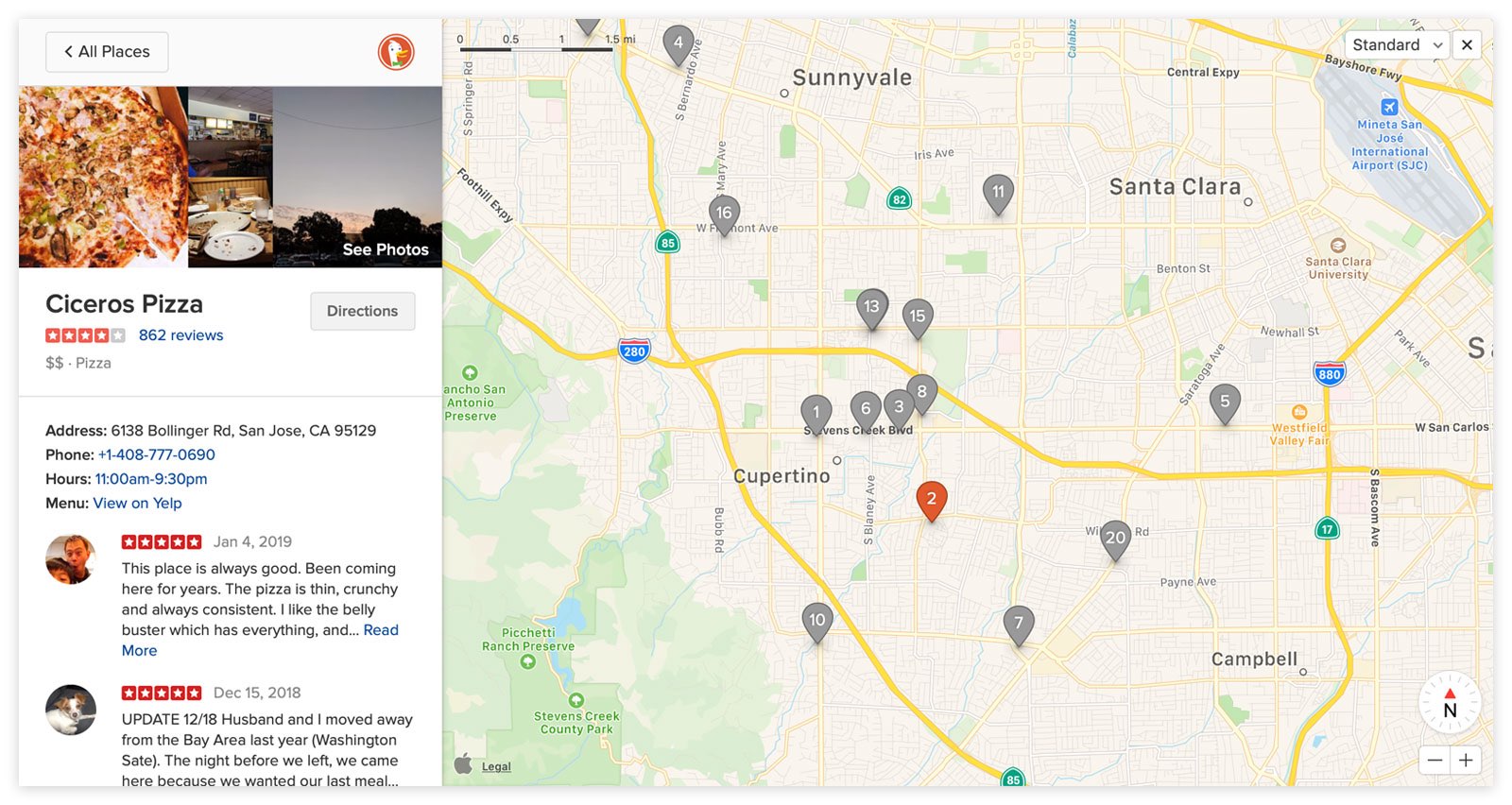
Private search engine DuckDuckGo announced Tuesday that it’s now switched to privacy-focused Apple Maps services to “set a new standard of trust online” for address and map searches on desktop and mobile. DuckDuckGo is one of the search engines natively supported as an option in Safari for iPhone, iPad and Mac.
This combination of mapping and privacy not only improves address searches, it also offers visual features like vector graphics, enhanced satellite imagery and continually updated maps.
Apple Maps are both embedded within DuckDuckGo’s private search results for relevant queries, as well as available from the Maps tab on any search result page.
To see the integration in action, run the example query “pizza in Cupertino” on the DuckDuckGo website on your desktop or mobile device.

The expanded map has a sidebar listing nearby businesses that can be clicked to quickly highlight that location. You can zoom in on a location, get details, change views and more.
TUTORIAL: How to change the default search engine in Safari
Here are a few more queries to get you started:
- Search for an address
- Search for a geographical place
- Search for a local business
- Search for a type of business
- Search for places nearby
The integration comes with Apple’s and DuckDuckGo’s strict privacy policies.
We do not send any personally identifiable information such as IP address to Apple or other third parties. For local searches, where your approximate location information is sent by your browser to us, we discard it immediately after use. You are still anonymous when you perform map and address-related searches on DuckDuckGo.
This is powered by Apple’s MapKit JavaScript framework, launched at WWDC 2018 as a web framework for third-party developers to use in their apps. Apple currently uses it to embed maps on the WWDC website, in apps like Find My iPhone and Find My Friends, and elsewhere.
Anyone can add Maps functionality to their website with just a few lines of code, complete with annotations, overlays and interfaces to Apple Maps services such as search and directions.